The UNEP FI Regional Roundtable for Africa and Middle East was held virtually on 22 and 23 June 2021, and welcomed 400+ participants and 30+ speakers to help define the role of banking, insurance and investment in shaping ambitious responsible strategies to proactively address the challenges and opportunities of a green recovery, whilst transitioning to a low-carbon, inclusive and sustainable future.
This year’s roundtable had the invaluable contribution of Mr. Harvesh Seegolam, Governor of the Bank of Mauritius (BOM), with insights on greening of the financial system in Africa and the Middle East from a regulatory perspective. In line with other speakers, he reiterated that we are at a point in time when all stakeholders are getting increasingly concerned about the impact of climate change on the global economy and certainly on the world of finance. Central banks therefore must be ready to face the challenges that climate changes poses to the world of finance. Mr. Seegolam highlighted how BOM has been rolling out a strategy for the greening of the financial system by embarking on a new program with a sustainability agenda with two key aspects: climate change and digitalisation. In July 2020, BOM became a member of the Network of Central Banks and Supervisors for Greening the Financial System (NGFS). More recently, BOM rolled out a guide on sustainable bonds that included international counterparts such as UNDP and the World Bank. Going forward, the Bank will be introducing a fully pledged climate change centre that will focus on regulatory aspects that are needed for sustainability. Alongside the centre, the Bank will engage in active consultations with stakeholders to deliver on an enabling framework and environment that is pragmatic and workable.
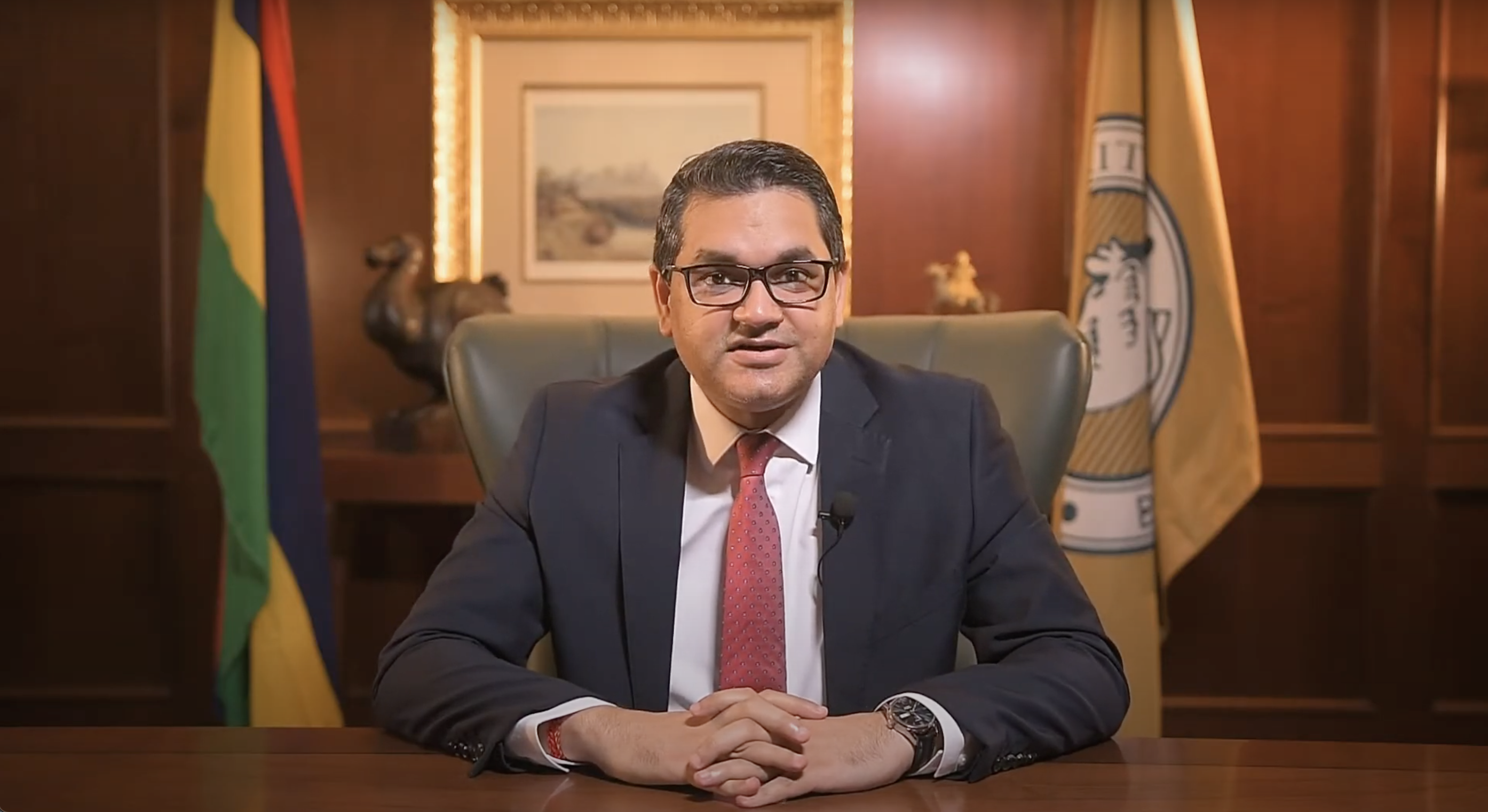
The UNEP FI Regional Roundtable Africa and Middle East next held a discussion on the next steps to financing a green recovery in the region. The panellists defined a “green recovery” as building resilience against both environmental and social challenges by blending finance to address the issues that tie to the economy, including climate change and COVID-19. They emphasised collaboration between different financial institutions and sectors to allocate capital to projects and solutions aligned to environmental and social goals, whilst working to fill data gaps and provide required technical assistance. In addition, panellists discussed the need to build programmes and policies aimed at a green recovery, incentivise green finance, and create robust regulatory frameworks to mobilise capital effectively.
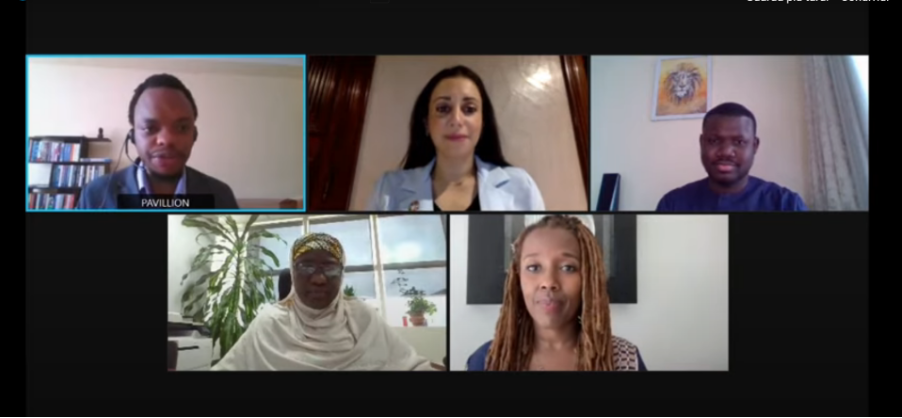
The next session focused on the role of financial institutions in financing a circular economy. The panel explored the obstacles delaying the transition to a circular economy, reducing waste, addressing knowledge and data gaps, the lack of consistent and targeted policy and frameworks, as well as financial barriers including limited funding and incentives. The panellists identified several industries within the region that could be key to transitioning to a circular economic model. They recognised that it will require financial institutions to mobilise their employees by building awareness, as well as external collaboration between the different sectors and governments to drive the transition through policy and financial incentives.
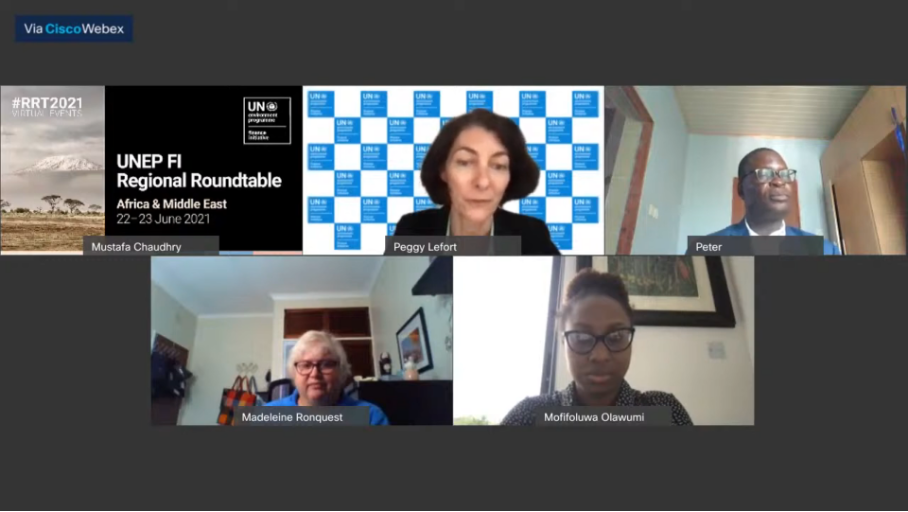
The first day of the Roundtable culminated in a panel focused on harnessing insurance for the Sustainable Development Goals (SDGs). The panellists agreed that their role as insurers revolves around increasing insurance penetration whilst decreasing negative social and environmental impacts associated with different industries. This is done through aligning strategy and business with the SDGs, increasing financial inclusion, leveraging technology to bridge gaps that exist in the market, and assisting clients through targeted products, platforms, policies and distribution channels related to understanding impact and risk management. The panellists emphasised building awareness and mobilising society through insurance to address pressing issues in the region such as poverty, climate change, and access to health. The Nairobi Declaration, launched earlier this year by African insurers, offers the industry solutions to enhance skillsets around risk management, build resiliency while decreasing risks associated with the transition to environmental targets, harness opportunities in the transition to increase sustainability, engage with policy makers and market participants, and build capacity around promoting sustainable insurance practices.
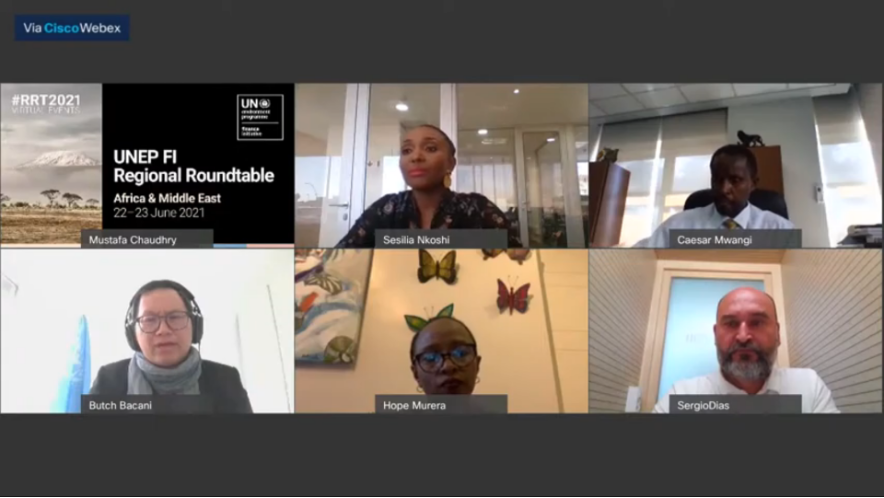
The second day of the Roundtable began with a panel focused on achieving net-zero targets within the region. Whilst it is globally agreed that the transition to net-zero must happen by 2050, the panellists highlighted that for Africa and Middle East, the green transition is required urgently to address key challenges including famine, destruction of ecosystems and water scarcity. As a result, the pace and scale for achieving net-zero must be accelerated to address these threats whilst also recognising the opportunities available within the region. The panel discussed the need for finance institutions to increase public education, offer financing options to customers that facilitate a green economy and engage with the government and regulators to help them realise their roles as leaders in adopting policies and offering incentives for achieving net-zero goals. The panellists agreed that the integration of ESG across finance institutions is paramount while leveraging climate finance by greening portfolios and developing green products for clients.
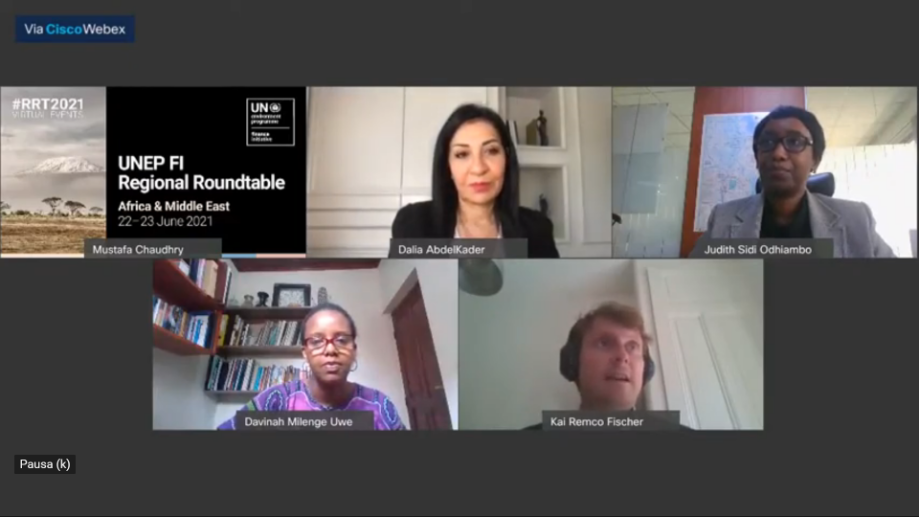
The next session saw how UNEP FI’s Task force for Climate-Related Financial Disclosures (TCFD) programme can help financial institutions address climate risks in the region. The session highlighted that within the resource rich region, institutions need to understand the risks that are associated with the transition away from activities related to climate change, and the TCFD programme can assist in meeting any future regulatory requirements related to climate while also showing investors and stakeholders that climate risks are actively being addressed.
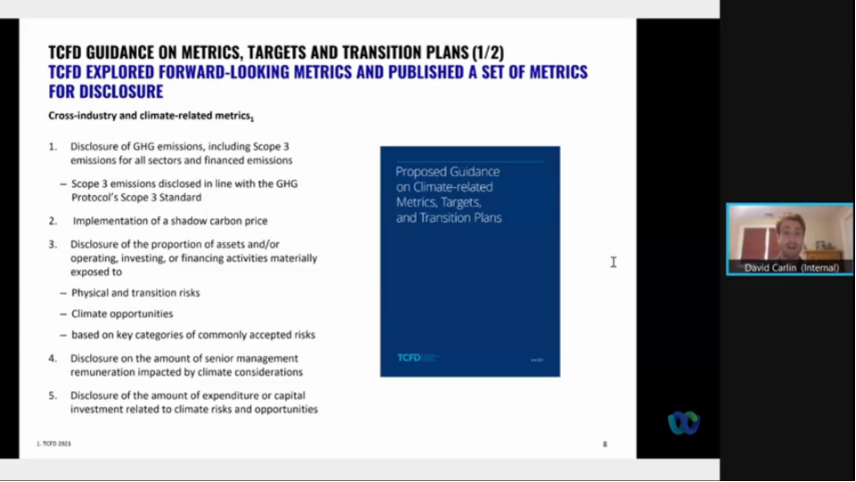
The next session focused on how financial inclusion and risk protection can be used to build resilient societies and discussed the requirements for sustainable growth that address societal inequalities and build stronger, more inclusive communities. For this to be achieved, there must be decreased risk associated with increased lending which can be addressed through insurance, microfinancing and group-lending solutions amongst others. The panellists presented initiatives that their finance institutions are offering that increase access to credit, products, and services, emphasising that only by improving access can more people get involved in the economic system, and systemic risks and injustices may be addressed. A key point discussed by the panel was the use of digital channels to provide financing options and products on a larger scale, mobilising finance for a greater group of people to address environmental and social issues.
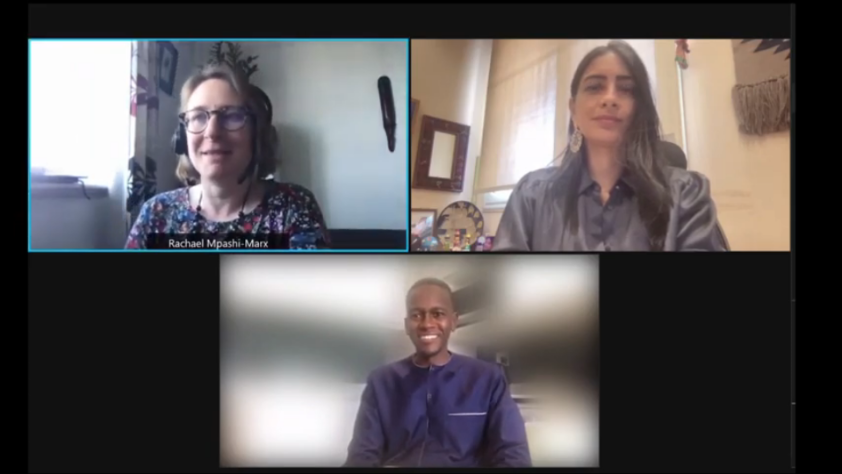
The Regional Roundtable ended with a look at the projects and partnerships helping advance sustainable finance in Middle East and North Africa. Panellists highlighted the work various institutions are undertaking to advance sustainable finance within the region, including building partnerships to enhance public-private cooperation to share knowledge and expertise on sustainable finance, and implementing facilities and initiatives to progress the transition to green finance. Several institutions and partnerships are also assisting financial actors in their decision making by providing training, helping to build strategy, and allowing access to data aimed at better understanding their environmental and social impact. The panellists discussed the next steps on diversifying financial instruments and blending finance to scale up sustainable finance efforts and initiatives, building capacity in financial institutions to bridge knowledge gaps, and providing clear policies and incentives that includes regulation and monitoring to address environmental and social risks.
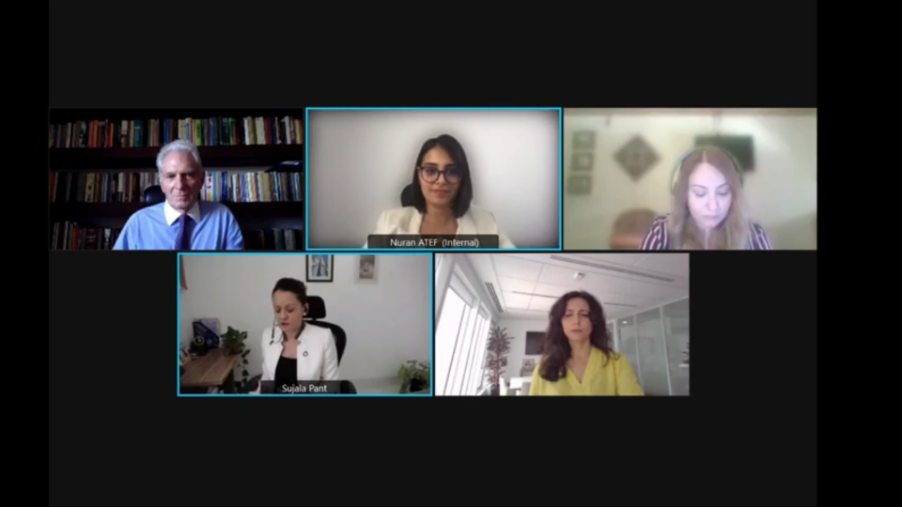
UNEP FI would like to thank all attendees, speakers and sponsor, RepRisk, for making this event a great success. You can watch all event recordings here.


